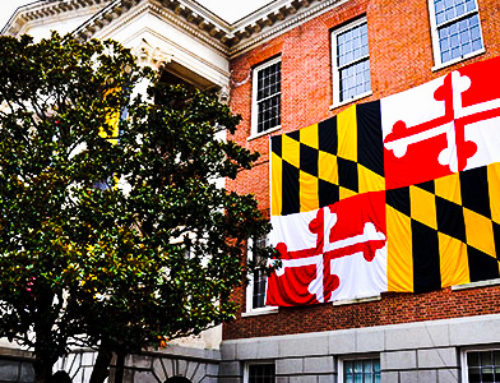View by Topic
Recent Articles
-
EPA Designates PFOA and PFOS as Hazardous Substances under Superfund LawSaturday, April 20th, 2024
-
Federal Government Finalizes New Efficiency Standards for LightbulbsSaturday, April 13th, 2024
-
2024 IECC is Final After Addressing Preemption IssuesSaturday, April 6th, 2024
-
Settlement Portends Broad Failure in Attempts to Ban Natural GasSaturday, March 30th, 2024
-
SEC Climate Disclosure Rule Stay and Venue Now in the 8th CircuitSaturday, March 23rd, 2024
View by Month/Year
“Green Building Law Update” Headlines
Recent Articles & News from
Stuart Kaplow’s blog
at GreenBuildingLawUpdate.com
- EPA Takes Action: PFOA and PFOS Now Hazardous Substances Under Superfund Law April 21, 2024
- Shedding Light on the Future: The Evolution of Lightbulbs in the Wake of New Energy Efficiency Standards April 14, 2024
- 2024 International Energy Conservation Code is Final After Addressing Preemption April 7, 2024
- Settlement Portends Broad Failure in Attempts to Ban Natural Gas March 31, 2024
Subscribe to the Green Building Law Update!
Stuart Kaplow brings his expertise and extensive experience to the table with his unique digital publication, "Green Building Law Update". Subscribers receive regular updates to keep them informed about important issues surrounding Environmental Law, Green Building & Real Estate Law, as well as the emerging demand for Environmental Social Governance (ESG).
Get fresh content through the lense of Stuart Kaplow's cutting-edge expertise, innovative commentary and insider perspective. Don't miss another issue! Subscribe below.

A Single Family Home in Maryland Cannot be Sold “As Is”
The question this law firm is asked most often about single family home sales is whether or not a house can be sold “as is.”
The answer since a dramatic change in Maryland law effective October 1, 2005, is “no” a single family home cannot legally be sold “as is.” Caveat emptor no longer exists in Maryland.
This law applies only to single family residential real property improved by four or fewer single family units. It does not apply to the initial sale of a newly constructed house, to a house acquired by a lender in foreclosure, to a house to be converted to other than residential use, a sale by an estate, a sheriff’s sale, and the like.
Maryland Annotated Code Real Property Article section 10-702 mandates,
A vendor of single family residential real property shall complete and deliver to each purchaser:
(i) A written residential property condition disclosure statement on a form provided by the State Real Estate Commission; or
(ii) A written residential property disclaimer statement on a form provided by the State Real Estate Commission.
So, the option is either to disclose the physical condition of the property or disclaim any warranties related to the condition of the property, but ..
The law requires the residential property disclosure statement must disclose those items that the State Real Estate Commission requires to be disclosed about the physical condition of the property.
The disclosure form must include a list of defects, including latent defects, or information of which the seller has actual knowledge in relation to the following: Water and sewer systems; Insulation; Structural systems, including the roof, walls, floors, foundation, and any basement; Plumbing, electrical, heating, and air conditioning systems; Infestation of wood-destroying insects; Land use matters; Hazardous or regulated materials, including asbestos, lead-based paint, radon, underground storage tanks, and licensed landfills; Any other material defects of which the vendor has actual knowledge; Whether the smoke alarms will provide an alarm in the event of a power outage, are over 10 years old, and if battery operated, are sealed, tamper resistant units incorporating a silence/hush button and use long-life batteries as required in all Maryland homes by 2018; and, If the property relies on the combustion of a fossil fuel for heat, ventilation, hot water, or clothes dryer operation, whether a carbon monoxide alarm is installed on the property.
But delivering a death knell to “as is,” even in the event a seller chooses not to disclose, but rather to disclaim, the state law provides,
The residential property disclaimer statement shall:
(1) Disclose any latent defects of which the vendor has actual knowledge that a purchaser would not reasonably be expected to ascertain by a careful visual inspection and that would pose a direct threat to the health or safety of the purchaser or an occupant; and
(2) State that:
(i) Except for latent defects disclosed under item (1) of this subsection, the vendor makes no representations or warranties as to the condition of the real property or any improvements on the real property; and
(ii) The purchaser will be receiving the real property “as is”, with all defects, including latent defects, that may exist, except as otherwise provided in the contract of sale of the real property.
That is, the sale can be “as is” only after the seller discloses all latent defects. and despite using the term “as is” in the statute, such is not actually “as is.” That is not caveat emptor.
The complete maxim, caveat emptor, qui ignorare non debuit quod jus alienum emit, translates “let a purchaser, who ought not to be ignorant of the amount and nature of the interest which he is about to buy, exercise proper caution.”
Historically, home sellers had no obligation to mention property defects to buyers so long as the sellers resisted the temptation to actually conceal latent defects or to lie about the condition of the property. But now, following a national shift that has its roots in the consumer protection trends of the 1990s, and advanced by the real estate brokerage industry after courts began holding brokers liable for seller errors and omissions, Maryland adopted statutorily mandated disclaimer and disclosure statements.
These seller’s obligations to a buyer “may not be waived in the contract of sale and any attempted waiver is void.” That is, very significantly, the parties cannot agree among themselves that the sale is “as is”.
Also of great import is that a buyer who does not receive the “disclaimer statement on or before entering into the contract of sale has the unconditional right, upon written notice … to rescind the contract of sale at any time before the receipt” of the disclaimer statement or within 5 days following receipt.
A seller of single family residential real property must disclose information about latent defects to a buyer. And given that this cannot be waived, a carefully drafted contract form is more important than ever in mitigating risk and shielding a seller from claims of a buyer after settlement.









